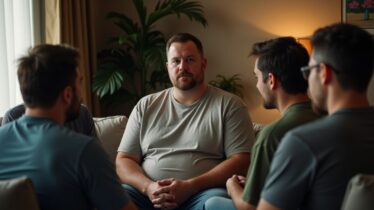Understanding Parental Alienation and Its Impact on Families
As parents, we all want what’s best for our children. We want them to be happy, healthy, and to have a positive relationship with both parents. Unfortunately, there are times when parents may intentionally or unintentionally sabotage the relationship between their child and the other parent. This behavior is known as parental alienation and it can have a devastating impact on families.
What is Parental Alienation?
Parental alienation is a process by which one parent manipulates a child’s thoughts and feelings towards the other parent. It can take many forms, such as making negative comments about the other parent, withholding contact or communication, or even lying to the child about the other parent. This behavior can be intentional or unintentional, but the impact on the child and the family can be profound.
The Impact of Parental Alienation on Children
Children who are victims of parental alienation may feel confused, anxious, and torn between their parents. They may feel like they have to choose sides or that they are being forced to reject one parent in order to please the other. This can lead to long-term psychological and emotional issues, such as depression, anxiety, and low self-esteem.
The Impact of Parental Alienation on Families
Parental alienation doesn’t just impact the child, it also impacts the entire family. The targeted parent may feel hurt, angry, and powerless to change the situation. The alienating parent may feel justified in their behavior and may refuse to acknowledge the harm they are causing. This can lead to ongoing conflict between the parents, which can further harm the child and create a toxic family environment.
How to Address Parental Alienation
If you suspect that your child is being subjected to parental alienation, it’s important to take action. Here are some steps you can take:
-
Seek professional help: Consider reaching out to a therapist or counselor who can help your family navigate this difficult situation.
-
Document the behavior: Keep a record of any behavior that you believe is contributing to the parental alienation.
-
Be proactive: Take steps to maintain your relationship with your child, such as sending cards, letters, or small gifts.
-
Don’t retaliate: It’s important to remain calm and avoid retaliating against the other parent, as this will only escalate the conflict and harm the child.
In conclusion, parental alienation is a serious issue that can have a long-term impact on families. If you suspect that your child is being subjected to parental alienation, it’s important to take action and seek professional help. By working together, you can help your child maintain a healthy and positive relationship with both parents. If you are in need of help with parental alienation, divorce counseling or family counseling. please contact Dr. O TheTeenDoc for a free consultation at dro@theteendoc.com or call 650-762-9069.

Dr. O “TheTeenDoc.” helps clinicians communicate better with their teen patients. She speaks, blogs www.TheTeenDoc.com, researches and consults on communicating with teens. She has written two e-books for parents and teens on communicating about the challenging subject of sexual health. You know, teens that bring chief complaints of belly pain, social crisis, emotional turmoil and obnoxious parents. Or, is it the parents with obnoxious teens? Sometimes she mixes that complaint up.
Dr. O speaks www.TheTeenDoc.com to and is consulted by clinicians who want advice managing difficult teen and teen-parent situations. These situations frustrate clinicians and slow down their clinics making them wonder if they’ll ever walk out the door for the day. Every day, in her own practice, Dr. O helps clinicians communicate better with teens and helping you is another level of reward. Her talks are fun and informative, and her delivery empowers clinicians to actually think teens are an awesome group to work with. Her energy about teens is contagious and has inspired her coaching clients to have less fear and more confidence with the teens in their panel. Her dedication to seeing you succeed with a group she is so passionate about is what makes Dr. O’s Lounge the place you want to be!
If you are a clinician that has teen’s in your practice, from pediatrics to internal medicine, the person with whom you need to connect is Dr. O “TheTeenDoc!” You can listen to a complimentary audio “The Art of Teen Medicine” and recommend her e-book “Are You Serious? It’s Just Sex!” to your patients. And while you’re there, become part of Dr.O’s Lounge.
Specialties: consulting, coaching, counseling, mental health, research, seminars, spanish, public speaker, teaching, communications between teens and adults



